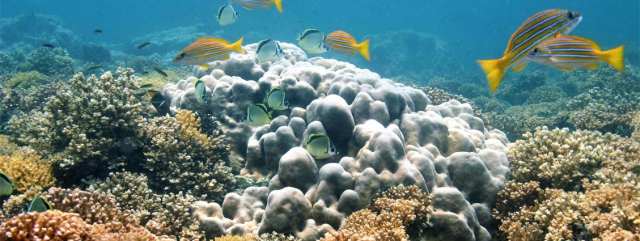Project description
Climate change has profound effects on the world’s transition zones where tropical and temperate species coexist. Quantifying species abundance and functional diversity of communities in these areas is key to reveal how evolutionary and ecological processes influence species distributions, as well as identifying the species and assemblages that are most vulnerable to disturbances in the Anthropocene.
Focusing on the Tropical Eastern Pacific (TEP), this project will be the first to assess how ocean warming shapes reef fish abundance and functional diversity.
Specifically, CLIFETEP will (i) quantify how fish abundance and functional diversity vary across latitude (ii) identify which species are most vulnerable to temperature changes and likely to switch their distribution ranges given their functional traits, (iii) determine which historical, geographical, oceanographic and climatic factors explain the current spatial patterns of abundance and functional diversity and (iv) determine how has functional diversity varied within transition zones over the past decade.
Project Partner |
|---|
|
Professor Agostino Merico, WG Systems Ecology at ZMT Dr. Juan Pablo Quimbayo (University of São Paulo) |





